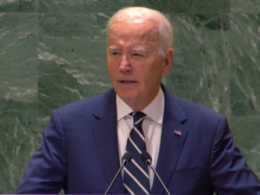On 4 February, after months of negotiations, US Senate lawmakers unveiled an extensive bipartisan border security agreement designed to dissuade migrants from attempting to cross the US-Mexico border. The $118 billion national security legislation encompasses substantial funding for Ukraine, Israel, and the Indo-Pacific, "but it has a politically perilous path ahead," The Washington Post says.
US Congressional Republicans have been stalling the approval of new aid funding for Ukraine and Israel for months. The lack of military aid degrades Ukraine’s military capabilities, benefitting Russia.
The comprehensive aid package encompasses $14 billion in assistance for Israel, $60 billion for Ukraine, and $4.83 billion for Indo-Pacific nations. Additionally, it allocates $10 billion for humanitarian aid benefiting civilians in Gaza, the West Bank, Ukraine, and other countries, along with $20 billion allocated for US border funds. The total cost of $118 billion exceeds the White House's initial request of $106 billion, made back in October 2023.
According to WP, lawmakers on both ends of the political spectrum in Congress have criticized the legislation, with House Speaker Mike Johnson deeming it "dead on arrival" in the chamber even before reviewing its contents, while former US President Donald Trump opposing the deal, as he made the border a core campaign issue.
Senate Majority Leader Charles Schumer announced that he would hold the first procedural vote on the legislation on Wednesday, 7 February, leaving little time for its proponents to sell its provisions.
Republicans initially insisted on a change in border policy as a condition to approve the $60 billion Ukraine aid requested by the White House last year, and the final agreement incorporates several stringent border provisions that have been a longstanding Republican objective, according to WP.
Read also:




